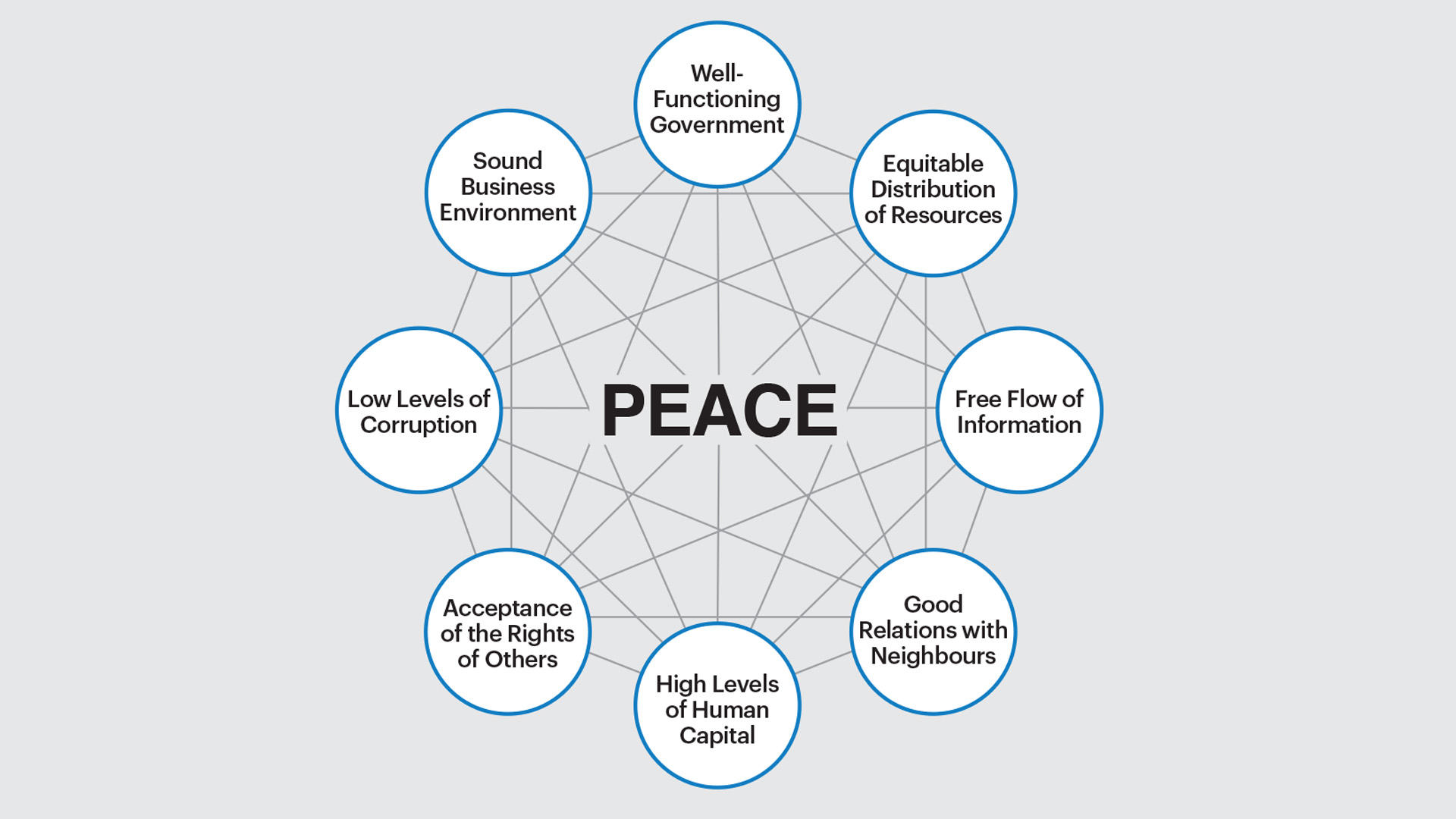
One of the core ambitions of the work of the Institute of Economics & Peace is to strengthen the ‘attitudes, structures, and institutions’ which underpin thriving, peaceful societies. The key to achieving this is by providing the skills and knowledge necessary for effective, community-led action. And what better way to promote a sustainable lasting peace then to invest in the next generation of peacebuilders?
That is exactly what Evelyn Jiang of Illinois, USA, set about to accomplish as she organized a cohort of motivated students from across the country to undertake the IEP Peace Ambassador Program together. Together, they called themselves the Humanity Rising cohort.
Over the course of the program, Ambassadors participated in a series of webinars where they were each introduced to the IEP’s Positive Peace Framework. This Framework is centred around a ‘systems-based approach’ to understanding what makes for a peaceful society. IEP breaks this down further into the eight pillars of Positive Peace, each of which are connected and interdependent upon one another.
Armed with this new way of thinking, Ambassadors are tasked with designing and implementing a peace project. Each one must be aimed at addressing and strengthening one, or all, of the pillars. This is in keeping with IEP’s empirically back research, which suggests that this type of targeted action is the most effective way to encourage a more peaceful civil society.

Student Spotlight
The students of the Humanity Rising cohort designed and carried out a range of community projects and presentations, here are just a few:
Astha Dedakiya from Gilbert, Arizona decided to take all that she had learnt about the Positive Peace Framework and present it in a series of Ted Talk style speeches. Condensing the content down into what could easily be retained by high school students, she presented at five different schools.
Speaking to 11th and 12th graders, she educated them about Positive Peace, while creating a space for interactive conversation. After each session, Astha partnered with the administrative staff of each school to select five students who would go on to found a Positive Peace Activation Club. She now receives monthly reports on the successful projects that they complete.
For another project, Ankur Prasad and Khush Makadia from Schaumburg, Illinois decided to apply IEP’s pillars of Positive Peace to India, creating a practical case study of the country’s Phase 2 response to the COVID-19 crisis. Focusing on each of the Pillars of Positive Peace in turn, they evaluated the weaknesses present in India’s current approach whilst offering potential solutions.
In keeping with IEP’s systems based approach, each solution was tailored at strengthening the attitudes, institutions, and structures of civil society. Ankur and Khush successfully presented the conclusions of their research on a Zoom session before their peers and other interested parties.
A final project was that of Sumaya Zahid, alongside her sister Salwa Zahid, who ran a Positive Peace awareness session for the student-run humanitarian organisation, Spartans for War Victims. The organisation was co-founded by the two sisters at their school. Together they used the awareness session to introduce their fellow students to the concepts of Negative and Positive Peace, as well as the indicators and Pillars that measure and support them.
A key aim of Sumaya and Salwa’s presentation was to draw a connection between IEP’s research and the goals and actions of Spartans for War Victims. They demonstrated how the two organisations share the common motivation of generating more positive peace. The presentation concluded with a further call to action, as the pair shared a range of IEP resources and research to enable their members to continue activating positive peace at a local level.
Related articles: Introducing Positive Peace to the Russian Youth Forum
If you are inspired by this story of some of our incredible IEP Peace Ambassadors, expressions of interest for our upcoming April 2022 Peace Ambassador cohort are open now.